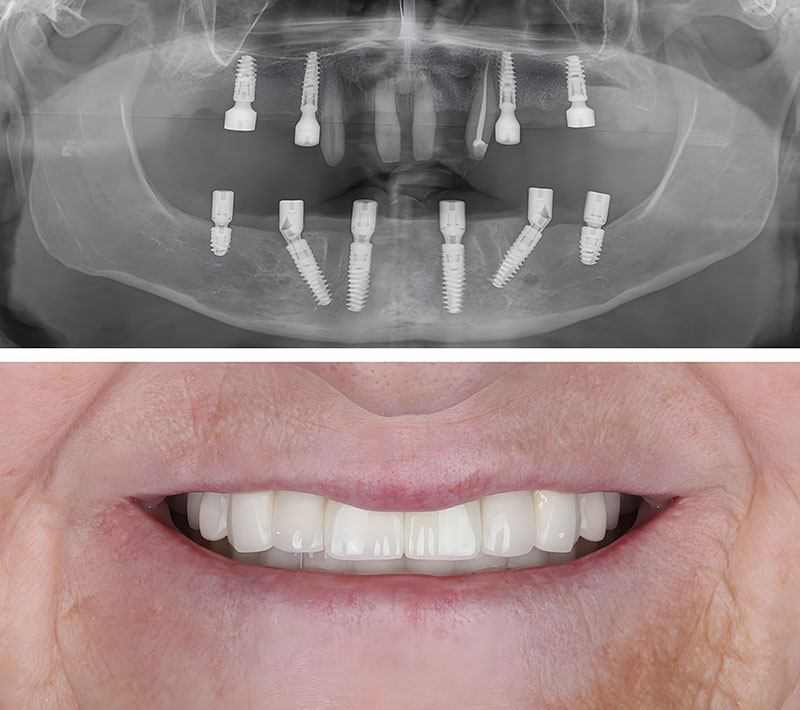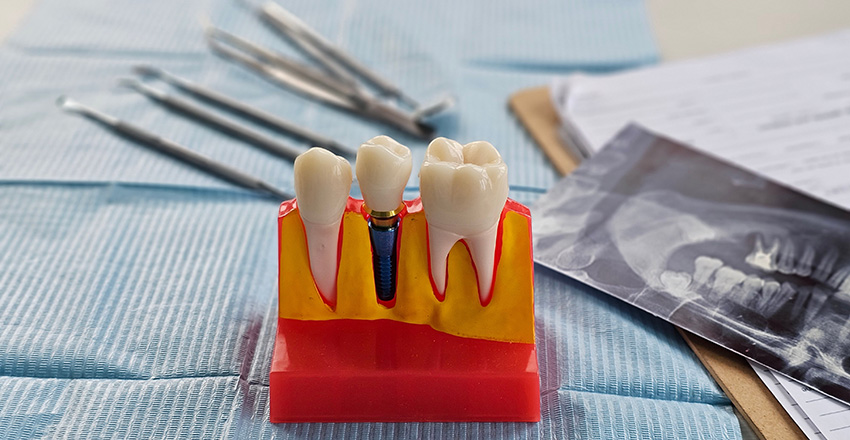The Dental Implant Process: A Complete Guide for Patients
Dental implants are one of the most reliable and natural-looking solutions for missing teeth. If you’re considering implant treatment, understanding the full process and your responsibilities as a patient is key to long-term success. In this guide, we break down each stage of the dental implant procedure and share crucial aftercare tips.
What Is a Dental Implant?
A dental implant is a titanium screw surgically placed into the jawbone to act as a permanent replacement for a missing tooth root. Once healed, a crown or bridge is attached to the implant, restoring both function and aesthetics.
Step-by-Step: Dental Implant Process
1. Initial Consultation & Planning
The process begins with a detailed examination, including X-rays or 3D scans to assess bone quality and oral health. Your dentist will develop a personalized treatment plan, which may include bone grafting if necessary.
2. Surgical Placement of the Implant
Under local anesthesia, the implant screw is placed into the jawbone. This procedure usually takes 30–60 minutes per implant. Temporary teeth may be provided, depending on your case.
3. Healing Period (Osseointegration)
The implant needs time to fuse with the jawbone—a process called osseointegration, which typically takes 2 to 4 months. During this time, a soft-food diet is highly recommended.
4. Abutment and Crown Placement
Once healed, an abutment is attached to the implant, which connects to the final restoration—either a crown, bridge, or denture.

What to Eat After Implant Surgery
Maintaining a proper diet during healing is essential for implant success.
First 1–2 Weeks:
- Yogurt
- Soup
- Mashed potatoes
- Oatmeal
- Soft fruits like bananas
1.5 Months Onward:
- Cooked vegetables
- Soft pasta and rice
- Soft meats (stewed or boiled)
- Chocolate
- Tomatoes
Avoid at All Times During Healing:
- Hard nuts and seeds
- Chewy candies
- Crunchy breads or chips
- Ice cubes
Oral Hygiene During the Healing Phase
Good oral hygiene is non-negotiable after implant surgery. Here’s what to do:
- Brush twice daily with a soft-bristled toothbrush.
- Use antimicrobial mouthwash as prescribed.
- Avoid using toothpicks around the implant.
- Gently floss, but avoid direct pressure near the surgical area.
- Attend regular check-ups as recommended by your dentist.
Habits That Can Jeopardize Implant Success
- Smoking: Severely impairs healing and increases risk of implant failure.
- Alcohol: Slows tissue regeneration.
- Poor oral hygiene: Leads to infection and bone loss.
- Bruxism (teeth grinding): May require a night guard to protect implants.
- Skipping follow-ups: Prevents early detection of complications.
Common Risks and Complications
While dental implants are generally safe and have a success rate of over 95%, complications can occur:
- Swelling or bruising
- Implant not integrating with the bone
- Nerve irritation (in rare cases)
- Infection around the implant site
Prompt attention and proper care minimize these risks significantly.
Who Is a Good Candidate for Dental Implants?
- Adults with fully developed jawbones
- Non-smokers or those willing to quit
- Individuals with good oral and overall health
- Patients with sufficient bone density or eligible for grafting
How Long Does the Dental Implant Process Take?
Depending on your bone health and whether bone grafting is required, the complete process can take 3 to 6 months from start to finish.
Final Thoughts
The dental implant process is a carefully coordinated series of steps that, when followed properly, results in a durable, natural-looking replacement for missing teeth. Success is not only in the hands of your dentist—but also yours.
By following dietary guidelines, maintaining oral hygiene, and attending regular check-ups, you can enjoy the long-term benefits of your new smile.
📞 Looking for a trusted implant provider? Contact our clinic to schedule your personalized consultation today..: +90 546 776 30 30

